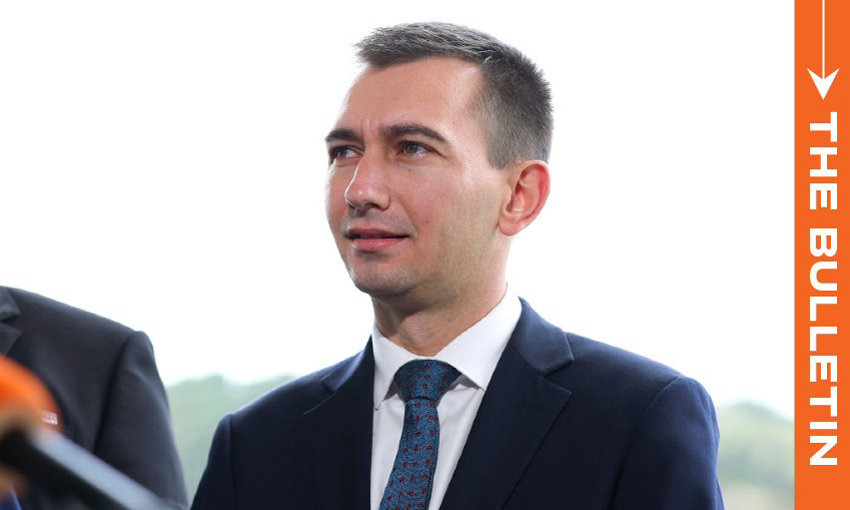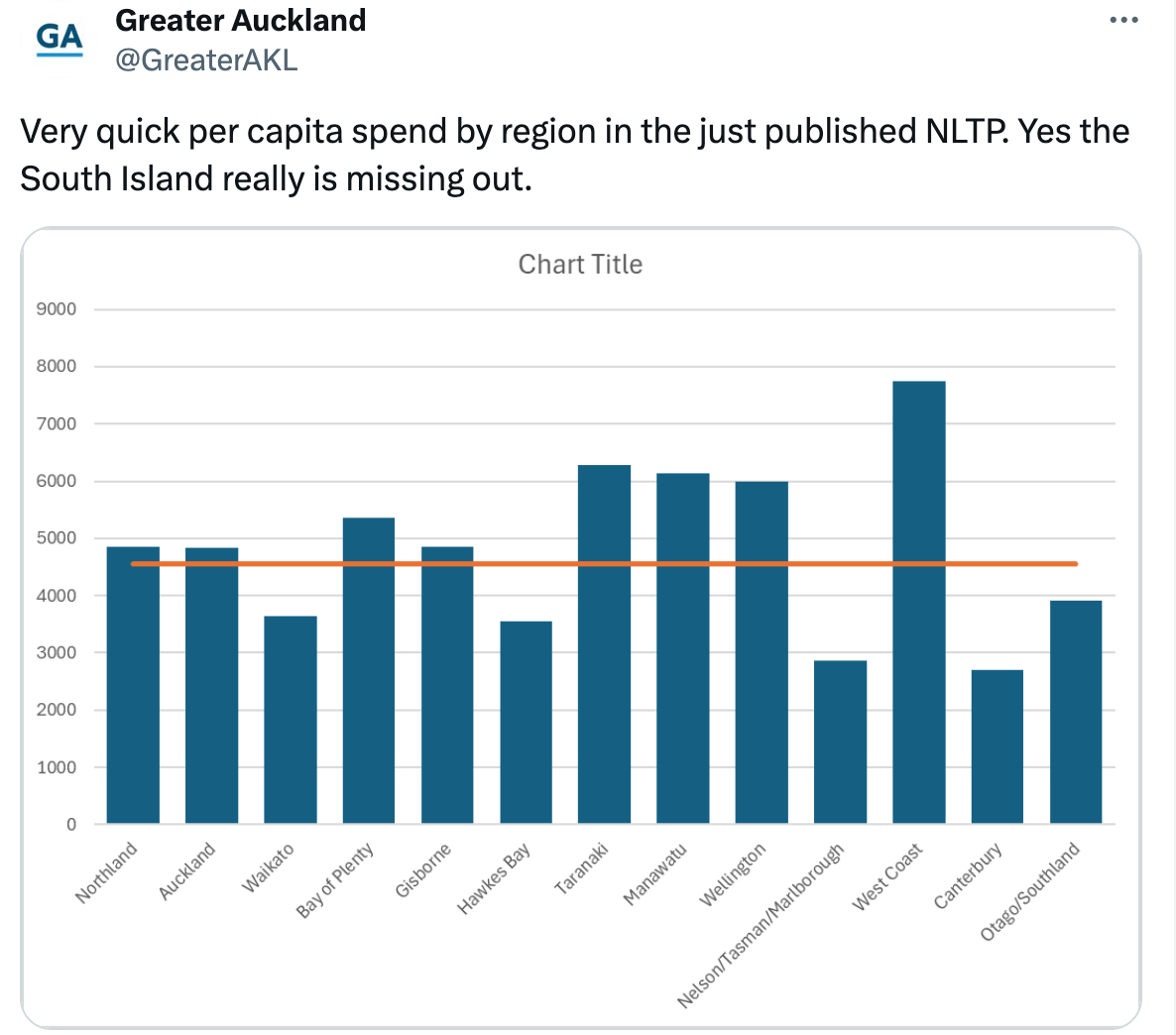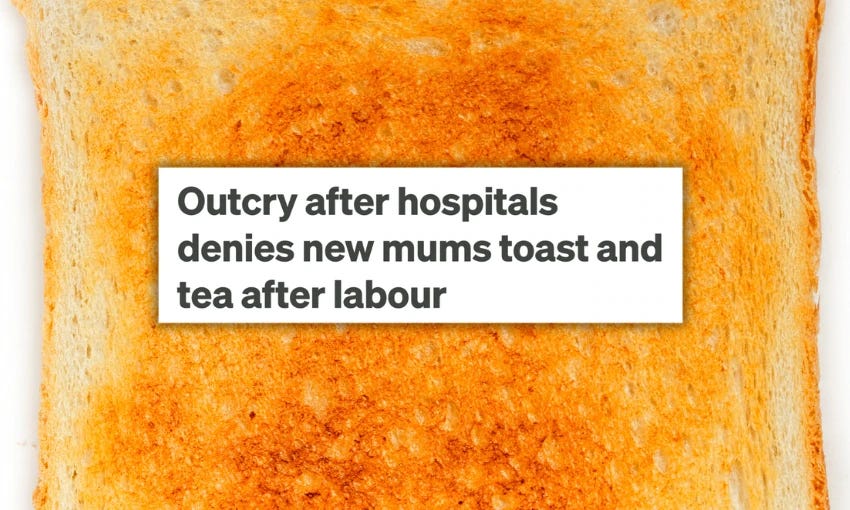Mōrena, and welcome to The Bulletin for Tuesday, September 3.
In today’s edition: The prime minister meets with his Malaysian counterpart, more questions about the future of The Warehouse, and South Africa Rugby apologises for haka interference. But first: Why are politicians so fixated on potholes?
A boost for roads
We’ve talked a lot about transport in recent weeks – from policies to target drunk drivers to the possible end of fuel excise tax (and maybe Auckland Transport as an organisation, too). It’s clear that the tail end of the government’s ongoing quarterly action plan has been dedicated to a flurry of costly infrastructure announcements, much of which were foreshadowed during the election campaign. Yesterday, reported the Herald’s Thomas Coughlan, another swathe of announcements were unveiled by transport minister Simeon Brown in the form of the latest National Land Transport Programme, which sets out where the transport agency spends its budget. It carried with it a price tag of nearly $33bn over the next three years, about $8bn more than what was allocated under the previous government. None of it is a surprise, given it lines up with priorities already released by the government. A significant amount of the budget – $7bn – has been earmarked for 17 new “roads of national significance”. And, as has been a consistent them of the government’s commentary since the election, there’s funding for road maintenance too.
Why the fixation on fixing potholes?
The latest action plan forecasts a $6.4bn investment in fixing potholes, with $4.6bn for road maintenance operations. It’s no coincidence that parties in opposition tend to fixate on issues, like pothole repairs, that from the outside can seem a bit trivial. In short, nobody likes a bumpy road and nobody is arguing for more potholes. This report from the United States doesn’t go quite as far as claiming that fixing potholes is an election winner, but it does suggest some correlation between the number of potholes in a particular area and the number of votes an incumbent candidate receives. “We find consistent evidence that more potholes in individual neighbourhoods result in fewer votes for incumbent… officials,” wrote the researchers, though noting that it’s a conclusion that doesn’t capture the full picture around where votes go. The recent UK election offered another example of potholes as an election issue, with the (since elected) Labour Party announcing a pledge to fix a million of them every year. This piece in The Conversation said that election campaigns often seek to give the “feeling” of improved infrastructure, pointing out that Labour’s promise risked distracting from “the meaningful investment that England’s infrastructure so desperately needs”.
In New Zealand, wrote The Spinoff’s Shanti Mathias last year, complaining about potholes has been something of a national pastime for over a century. And given rain is a major contributor to them forming in the first place, don’t expect that to stop even if the government is intent on filling them in.
Auckland a big winner
In pure financial terms, Auckland comes out on top in this latest funding commitment – over $8bn will be spent in the super city alone, said Simeon Brown, with $3.7bn of that to improve public transport services. All up, that’s about a quarter of the overall investment and will include starting work on three roads of national significance (though these won’t be completed in the three-year term). In per capita terms, as this graph by the Greater Auckland group shows, investment in the South Island is lagging behind. Though some projects – such as a replacement Pages Road bridge in Christchurch – have secured financing.
All of these projects are costly and time consuming. Politik’s Richard Harman (paywalled) queried what might happen if costs inflated beyond what has been set aside, noting that Brown has indicated an interest in “public-private partnerships” to help get extra money into the transport agency. Whether that eventuates remains to be seen.
Active transport a big loser
One area the latest round of transport funding noticeably lags is in walking and cycling infrastructure. In money terms, the budget for these projects has roughly halved – down to about $460m. Simeon Brown described these as “nice-to-haves”, reported RNZ, echoing the language used by his boss Christopher Luxon to describe so-called “white elephant” projects devised by local councils. The new land transport programme was about getting “back to basics”, said Brown, again using language that would fit nicely on a National Party brochure. "There's less money going into cycleways, and I think New Zealanders are sick and tired of the amount of money going into cycleways,” said Brown. The opposition is unimpressed, reported RNZ’s Russell Palmer, with Labour’s Tangi Utikere accusing the government of “putting all its eggs in one basket” and underinvesting in areas like rail transport, with the Greens’ Julie Anne Genter saying people will be forced to rely on their cars due to a lack of alternatives.
Speaking to Heather du Plessis-Allan on Newstalk ZB, Brown said that roading was “front and centre” of the budget and took aim at an “infestation” of speed bumps, which would have no extra money allocated. In The Post this morning, Amelia Wade looks at a claim by the transport minister that stopping 24 speed bumps would save $12m – a claim the Greens have labelled “demonstrably untrue”.
Jess Hong from 3 Body Problem on her rapid rise and being painfully shy
Growing up, Jess Hong thought she would be a 'hermit, novelist or poet' – now she's a lead actor in one of Netflix's buzziest shows. Hong joined Kiwibank's This is Kiwi podcast to talk about her breakout moment, and what it's like being back in Aotearoa after the wildness of Hollywood.
PM meets with Malaysian counterpart, pledges trade boost
Prime minister Christopher Luxon has kicked off his week-long tour of Malaysia and South Korea, meeting with his Malaysian counterpart Anwar Ibrahim and announcing a plan to increase bilateral trade by 50% by 2030 with the Asian nation. As Reuters explained, there was little detail on how the trade boost will be achieved, though the trade ministers of the two countries will meet next year to review our free trade agreement. Defence was also a key focus of the visit, reported 1News’ Benedict Collins, with Luxon and Anwat wanting to work more closely on combatting transational crime. The pair also discussed the “atrocities” in Gaza, though Luxon acknowledged “differences” in how the country’s viewed Hamas. New Zealand designated the group a terrorist entity following the October 7 Israel attack. "We may have differences around Hamas, but what we are very united on is that we need to see an immediate ceasefire in that region," Luxon said.
Can The Warehouse secure its future?
The Warehouse is still holding out hope for a lifeline after takeover talks with Australian private equity group Adamantem stalled, reported BusinessDesk’s Rebecca Stevenson (paywalled). The $590m bid hit a dead end over a month ago after failing to win over support from one of the group’s largest shareholders. As we talked about in July, it comes after a major restructure at The Warehouse’s head office along with fiscal challenges, including the decision to sell or close subsidiary brands like Torpedo7 and The Market.
Meanwhile, The Commerce Commission will publish its first annual report into the state of competition in the groceries market tomorrow, The Post’s Tom Pullar-Strecker reported. As he noted, The Warehouse was at one point aiming for a much larger slice of the grocery market – though chance of it still proving a viable disruptor to the duopoly seem slim.
Show your support, join up today!
"As a New Zealander living in Sydney, The Spinoff helps me to feel in touch with what's happening back home. There's a great breadth to the content – and the enthusiasm from your contributors is palpable. I feel happy and proud to be a member." Ian, Sydney.
Whether living here or abroad, if you value our work please show your support by becoming a member today.
Click and Collect
Finally, writes The Spinoff’s Joel MacManus, there are some fresh details about Wellington’s long-awaited Golden Mile upgrade.
Shane Jones said Judith Collins “sought to school me” after comments about judges.
South Africa Rugby apologises for Ellis Park haka interference.
Can NZ Post make a profit turnaround? It’s confident it can. (BusinessDesk, paywalled)
Waiheke Island's only after-hours medical clinic has closed its doors, leaving thousands in the community in the lurch.
Life inside the government’s first youth military boot camp: journalling, martial arts, marching and yoga.
A local alcohol policy means new rules for off-licence premises and maximum trading hours in Auckland, explains The Spinoff’s Gabi Lardies. Could Christchurch fast track its own action plan?
When Te Whatu Ora stopped giving toast to new mums, did it rob them of the greatest toast a human being can consume? Hayden Donnell ranks the best times and places to eat toast. In the second of a three-part series on the Waitangi Tribunal’s report on the proposed Treaty Principles Bill and Treaty provisions review, Luke Fitzmaurice-Brown explains what was said about the likely impacts of the bill. What to watch on Netflix NZ, Neon and more this week. The “just about perfect” season one was a tough act to follow, writes Tara Ward, but the new season of Sherwood pulls it off. Tama Nako asks: Is the government trying to build a wall between mātauranga Māori and science? On average, lesbians take years longer to come out than gay men. Emily Draper looks into the late-bloomer phenomenon.
That’s it for this morning, thanks for reading. I’ll be back tomorrow.
Want to get in touch? Join the conversation in the Substack comments section or via email at thebulletin@thespinoff.co.nz if you have any feedback on today’s top stories (or anything else in the news).
If you liked what you read today, share The Bulletin with friends, family and colleagues.

















I see this morning Simeon Brown has said there's nothing stopping Councils from funding cycleways and walkways, but they can't rely on support from central Government to do so. Disingenuous, dumb, or simply a large f**k off to anyone remotely interested in tackling climate change? The mind boggles at how many fronts the coalition is attacking Aotearoa; simultaneously damning our economy, environment, people, and social fabric is surely some sort of record!?!
The current government got in because they scared half the population into thinking the country was broke. But they are giving tax cuts and now planing to spend billions on New Roads???
Construction taps are turned off and construction labour is fleeing the country. Not hard to see why productivity is low with the country being lead so incompetently.